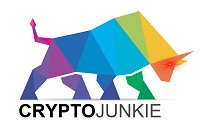Investing in businesses that go public for the first time can be insanely profitable if you know what to look for… And what to avoid.
Just take a look at what Beyond Meat Inc. (NASDAQ: BYND) did last year…
After opening to the public at $46 on its IPO date last May, the stock soared 420% to an all-time high of $239 per share just 85 days later.
But another popular tech giant, Uber Technologies Inc. (NYSE: UBER), didn’t fare so well…
After selling for $45 per share on its IPO just one week after Beyond Meat went public, Uber shares dropped like a rock.
At one point, shares were down 69.5% – to $13.71. And it’s never traded higher than $47.08 in its public existence.
You see, without the financial statements, calculating the values of private companies is nearly impossible.
It’s easy to estimate future cash flows, discount them back to the present, and calculate the intrinsic value of a company like Coca-Cola Co. (NYSE: KO), who’s been trading on the New York Stock Exchange since 1920.
But you need different ways to value private businesses before they go public…
So today, I’m going to show you exactly what I look for when determining whether or not to buy a new stock when it debuts on the open market.
I’ll even show you two companies I’m eyeing right now… And one stock I’ll definitely be sidestepping.
Let’s get the one you should avoid out of the way first…
IPO #1: Postmates

Rating: Avoid
Postmates is one of my least favorite companies that’s in talks of going public today.
Don’t get me wrong, the services Postmates provides are fine…
But the company doesn’t do anything unique or proprietary. There’s no real competitive advantage between Postmates and its competitors: Uber Eats, GrubHub, DoorDash, goPuff etc.
All of these companies compete on two things: price and the number of hosted restaurants/stores they deliver from.
And I believe that’s a losing proposition in the long-run…
You see, customers primarily only care about paying the lowest price possible to get the food/product/service they order. The data clearly shows there’s hardly any customer loyalty to use one platform over another if the price is lower on one of the 5+ apps…
That’s why all of these delivery companies endlessly ping our phones with promotion after promotion…
All they’re worried about is increasing top line revenue so they can get another seed-round investment from some delusional hedge fund manager that hopes to sell his or her stake to a greater fool…
But in reality, these promotions only increase the average cost of acquiring and keeping a customer long-term.
What these companies and investors haven’t realized yet, is that profits matter at some point. You can’t keep raising money in the private markets forever…
And I just don’t ever see Postmates turning the corner towards sustainable profitability.
All of the reasons above are why Postmates delayed its measly $2 billion 2019 IPO. And this was before COVID-19 pandemic, when we were still clearly in a bull market…
If Postmates didn’t feel comfortable going public then, for such a relatively small valuation, there’s no reason to trust them now or in the future.
If anything, I would be looking to short the stock or buy puts on Postmates once the lockup period expires. I bet their institutional investors have been wanting to get their money out for some time now.
One way or another, Postmates has a good chance of going to zero.
IPO#2: Palantir Technologies
Rating: Buy
Two things I look for when determining whether to buy a new stock:
- Strong leadership/management
- Competitive advantages in a big market that can’t easily be replicated by another company. (Benjamin Graham/Warren Buffett-style value investors call this having a “wide moat.”)
And Palantir Technologies checks both of these boxes.
Founded by billionaire investor and entrepreneur Peter Thiel in 2003, Palantir’s mission is to help people and institutions solve hard problems and change the world for the better with good data and the right technology.
Palantir collects big data from public and private databases and uses artificial intelligence to analyze the information it gathers. The proprietary AI and 5G technology the company engineered itself gives it a wide moat over its competitors. There is no company that comes close to Palantir’s data dominance…
When it comes to allocating capital and signing massive profit-driving clients for Palantir, I have no question that Theil is the best man in the world for the job.
In 1998, Theil co-founded PayPal with LinkedIn’s Reid Hoffman, Tesla’s Elon Musk, YouTube’s Jawed Karim, and more.
So, he knows a thing or two about running a tech company and how to surround himself with the best and brightest engineers possible.
Thiel’s also one of the most successful venture capitalists of all time. He made the first outside investment in Facebook (NASDAQ: FB), where he still serves as a director. And he provided early funding for LinkedIn, Yelp, SpaceX, and Airbnb – just to name a few.
The relationships Theil has with the leaders in tech, general business, and the government have led to Palantir signing many high-profile clients…
Some of Palantir’s largest customers include Morgan Stanley, Merck, Airbus, Fiat Chrysler, state and local governments, and even some federal agencies like the Department of Defense (DOD), the Central Intelligence Agency (CIA), and the National Security Agency (NSA).
It was even hired by the Centers for Disease Control (CDC) for the coronavirus pandemic we’re currently facing…
In 2014, Forbes estimated Palantir’s value at $9 billion, making it one of Silicon Valley’s most valuable private tech companies.
Just five years later, in 2019, the firm was reported to be considering an IPO by the Wall Street Journal at a $41 billion valuation.
That’s a 355% return (or 39.5% annualized) over the five-year time frame.
Since the company announced it expects 2020 revenue to be up 35% (after seeing a 24% increase in 2019), I think you could reasonably see Palantir stock double if it goes public later this year… Annualized returns over the next 10 years could be in the range of 20% to 30%.
IPO #3: Rivian

Rating: Buy
Another important factor I look for when deciding whether or not to buy an IPO are the institutional investors who purchased stock in private markets.
That’s because IPOs often fall after the 90-day “lockup period” expires, which allows institutional investors who bought in the private markets to sell in the public markets.
Just look at what happened to GoPro Inc. (NASDA: GPRO) after its lockup period expired… The stock is down 95.5% to date (from an all-time high $98 per share three months after the IPO to $4.50 today).
See, GoPro’s problem was that it had too many hedge funds as early, private investors looking to sell and make a quick buck after the stock shot up 308% from its $24 IPO price.
But the up-and-coming electric car maker, Rivian, is a completely different story…
Dubbed the “Tesla Killer,” this company has some of the best long-term institutional investors a company could ask for.
In case you’re unaware, Rivian makes electric pickup trucks set to rival Tesla Inc.’s (NASDAQ: TSLA) Model X and Cybertruck.
The company’s futuristic R1T all-electric pickup truck promises over 400 miles of driving range combined with acceleration times comparable to a supercar. And its R1S SUV does the same.
Rivian last raised money was in December 2019, when its high-profile investors valued the firm at $7 billion.
And those institutional investors are what make Rivian such an intriguing long-term buy and hold after its IPO…
You see, Rivian has strategically aligned itself with firms that have a history of investing for the long run… That means these companies are unlikely to sell the stock after their 90-day “lockup period” expires.
T. Rowe Price Group has invested $1.3 billion, Ford Motor Co. contributed $500 million, and Amazon.com Inc. has allocated $700 million so far.
What’s more… Not only are Jeff Bezos and Amazon investors in Rivian… They’re also a major customer.
That’s right.
After Bezos visited Rivian’s headquarters last fall, he inked a deal to buy 100,000 electric vans for Amazon’s delivery services.
And that 100,000 could quickly turn into 1 million as Amazon is working towards becoming delivery self-sufficient and carbon neutral by 2040.
Rivian clearly has a bright future ahead…
Not only do I expect Rivian to experience money doubling or tripling gains in the first three months after its IPO, I don’t think the stock will experience a sharp decline after the pre-IPO lockup period expires.
But since the company is not public yet and is only raising money from long-term institutional investors in the private markets until it does go public… You’re going to have to wait for the Rivian IPO to invest. Stay subscribed to Stock Market Junkie and I’ll keep you updated when Rivian’s IPO date is set.
Would You invest in SpaceX?
The companies on the cutting edge of space exploration are all private.
Which means the lion’s share of that wealth will only flow to a small circle of VC’s and private investors.
But here’s the good news: Thanks to an ex-Morgan Stanley banker, you can now become one of those investors.
In fact, he’s going to show you exactly how to get into the hottest private equity deals. Where the money is really made… Long before the company’s IPO.
So, if you want to have a founding stake in the space revolution… Or any of the other dozens of industries that will shape the next 20 years of humanity…






